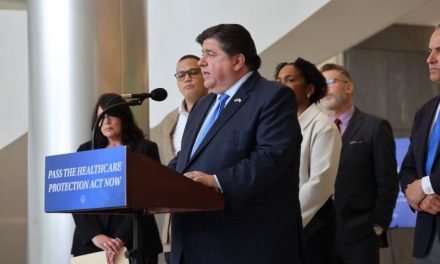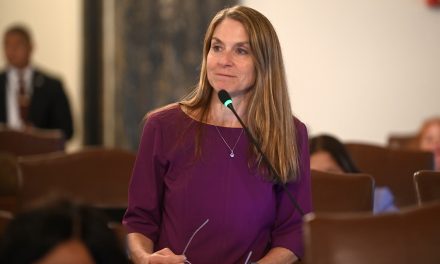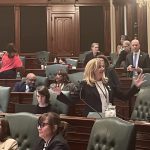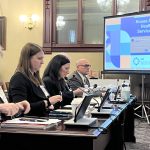
Behavioral health advocates add racial equity to ‘Treatment Plan’ agenda
Commemorating the close of Black History Month, one of Illinois’ top behavioral health advocate groups is officially adding racial equity to their ‘treatment plan’ agenda.
“The popular belief, ‘Knowing is not enough, we must do’, is what motivates the Community Behavioral Healthcare Association and its members to take a very direct and focused approach in making significant change in the areas of race, equity and social justice,” said Julie Rodriguez, Chair of the CBHA Committee on Race, Equity and Social Justice. “Together we will take the critically needed steps to fully realize our CBHA vision, which is to ensure an accessible, consumer and family responsive, efficient, effective, fully unified and principled healthcare system.”
“Equity” and “inclusion” will become additional and essential elements of the trade association’s advocacy agenda.
“The Community Behavioral Healthcare Association is committing itself to advocating for policy and culture changes, which will promote equity and inclusion,” said Theresa Nihill, Board President of CBHA. “Our next steps will be to create and implement a plan of action that will be adopted by the CBHA Board of Directors.”
Eliminating “disparities” in public health will be the chief policy goal.
“One of the main tenets of public health is to limit and eliminate disparities,” said CBHA CEO Marvin Lindsey. “Viewing racism as a public health crisis will help us to focus on the impact it has on the physical, mental and spiritual health of people and communities and develop solutions and strategies to prevent and improve systems.”
As a key first step, the Springfield-based advocacy group has crafted a “Race Equity and Social Justice Statement” to help guide their advocacy at the state capitol:
As we come to the end of Black History Month 2021, our association is very much aware that each year certain vestiges of the past are carried into each new year- some good, some bad. Unfortunately, the lingering legacy of embedded systemic and structural discrimination faced daily by racially and ethnically diverse communities will continue into the new year. It has never been clearer that racism has a profound impact on the mental and physical health of individuals and their communities, and This is Why We Must continue to lend our voice and actions to fairness, dignity, and respect for ALL People.
The CBHA Board of Directors established the CBHA Committee on Race, Equity and Social Justice to ensure that our association continues our focused work on speaking out against and working to change the policies, systems, culture, and institutions that have continued to allow and, in many cases, actively perpetuate the discriminatory practices that result in mistreatment, mass-incarceration, exclusion, health disparities, poverty and sometimes, murder of Black and Latinx men, women and children in our society.
Our association supports the position of the American Medical Association and a growing list of other institutions, states and municipalities – including Cook, Lake and Peoria Counties in Illinois- that view racism as a public health crisis.
Common elements in the declarations and resolutions of the above entities include:
- acknowledging the effects of intergenerational racism on population health, especially anti-Black racism,
- assessing governments’ internal policies and procedures with a racial equity lens,
- advocating for laws and regulations that center and promote racial equity,
- ensuring inclusivity and diversity in leadership, workforce, hiring and contracting,
- promoting educational efforts and support the development of policy to address and dismantle racism,
- identifying clear goals and objectives, including specific benchmarks to assess progress and,
- securing adequate resources for anti-racism activities.
As community mental health and substance use agencies across Illinois, the members of CBHA are committed to diversity, equity, inclusion and justice in the work we do collectively and as individual organizations. We feel obligated to call out racism as a public health issue that is wrecking lives and communities across Illinois.
For example, “In 312 of the 326 Illinois school districts where disparities could be calculated, black students were at least twice as likely to be disciplined as white students. In 59 districts, black students were more than 10 times as likely to be disciplined.” ProPublica
The COVID-19 pandemic has spotlighted racial and ethnic disparities in access to behavioral health care. While their rates of behavioral health disorders may not significantly differ from the general population, Blacks and Latinos have substantially lower access to mental health and substance-use treatment services as shown below. (NSDUH, 2020).
Black and African American people are more often diagnosed with schizophrenia and less often diagnosed with mood disorders compared to white people with the same symptoms and that can lead to inappropriate treatment. Additionally, they are offered medication or therapy at lower rates than the general population. NPR Illinois.
Blacks and Latinos have limited access to prevention, treatment, and recovery services for substance use disorders. While they have similar rates of opioid misuse as the general population, in recent years Blacks have experienced the greatest increase in rate for overdose deaths from non-methadone synthetic opioids (SAMHSA, 2020).
Black women are up to four times more likely to die of pregnancy related complications than white women.
The root causes of racism are active and systemic, so our solutions must be as well. CBHA is committed to deepening the community’s understanding of racism and the actions we can take individually and collectively to recognize and disrupt bias, challenge our own norms and practices, and support other organizations in doing the same.






